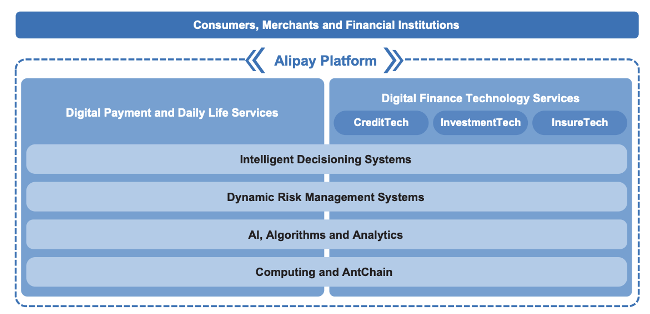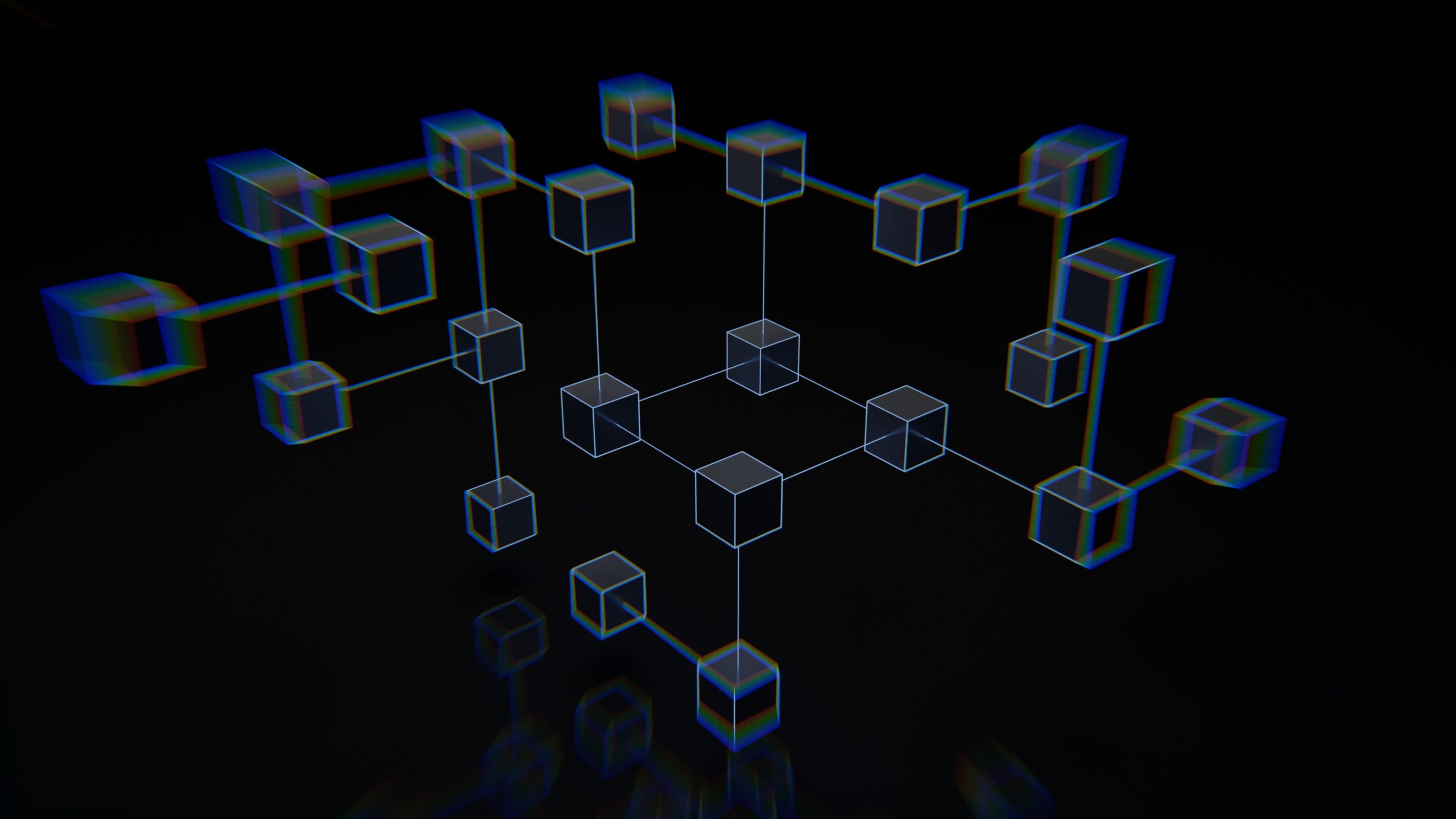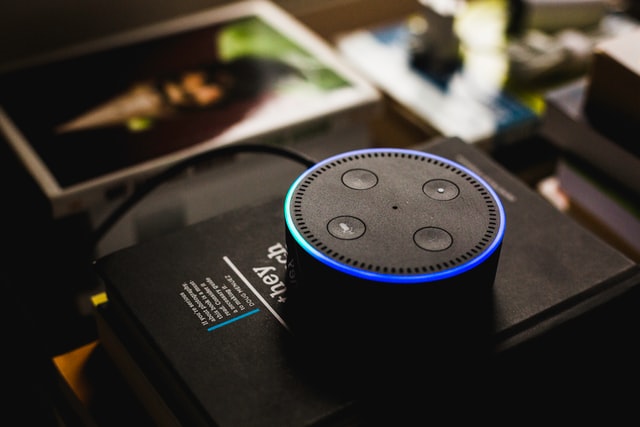
The Cognitive firm = AI + Blockchain
The Cognitive firm = AI + Blockchain
Recently, the rise of artificial intelligence (AI) and blockchain has given birth to a new kind of firm: the cognitive firm, the ability to acquire and process knowledge. It involves high-level constructs that our minds use for reasoning, understanding, problem-solving, planning, and decision-making. AI is defined as “the science and engineering of making intelligent machines, especially intelligent computer programs. It is related to the similar task of using computers to understand human intelligence, but AI does not have to confine itself to methods that are biologically observable” (McCarthy, 1985).
For example, in the financial industry, Ant financial is a cognitive firm. Formerly Alipay, the fintech started as an online and mobile payment tool on top of Taobao, Alibaba online shopping website in China, and expanded rapidly in online banking, wealth management, insurance, and credit rating. The fintech has become an empire and is valued at ~310 Billion USD[i] To put in perspective, that is more than Goldman Sachs, Wells Fargo & Co, and HSBC combined. The fintech processes credit applications and detect fraud following a 3–1–0 rule; 3 minutes to process an application, 1 second for approval, and 0 manual labor with 0.01% fraud loss[ii]. What makes Ant Financial singular is its operating model with AI and blockchain at its core (see figure 1 below).

What makes Ant Financial singular is its operating model with AI and blockchain at its core
Being a platform company helps because of the vast data collected, but it has numerous flaws. Research (Steers et al., 2014) revealed an association between time spent on Facebook and depressive symptoms after spending a great deal of time on Facebook because they feel bad when comparing themselves to others. When 35% of Amazon purchase or 75% of streams on Netflix is trigged through sophisticated recommendation engine creating a great user experience and value for the user (MacKenzie, Ian, and Meyer, Chris and Noble, 2013), meanwhile, 64% of the extremist group joins of all extremist group joins are due to our recommendation tools[iii]. Add to it polarization — anger is more influential than joy (Fan et al., 2014), political manipulation and data breach[iv], and the fact that fake news spreads six times faster than real one according to researchers (Vosoughi et al., 2018). Fake news grabs our attention more than authentic information: fake news items usually have higher emotional content. They contain unexpected information, which inevitably means that they will be shared and reposted more often. In the end, users are losing trust and/or develop concerns about modern communication and content. Also, they act as the new gatekeepers. Some states are tempted to adopt a security and authoritative platform state like the Sesame credit system in China.
Nowadays, it is tough to launch a service or product without being visible on search engines like Google, social media like Facebook, or Amazon marketplaces. This situation creates competition distortion pushing regulators to propose the new EU Digital Act and Service Act published in December 2020 (EU Commission, 2020).
Blockchain can fix many AI and internet current issues.
Blockchain can fix many AI and internet current issues. Part fo Bitcoin underlying technology, blockchain was invented and introduced by Satoshi Nakamoto (2008). Blockchain is also referred to as the trust protocol. “Trust in business is the expectation that the other party will behave according to the four principles of integrity: honesty, consideration, accountability, and transparency” (D. Tapscott, A. Tapscott, 2016). As Satoshi laid out in his visionary 2008 paper, bitcoin and blockchain are designed upon seven principles as a combination of computer engineering, mathematics, cryptography, and behavioral economics as follow:
1. Networked integrity with proof of work, which is a value produced for each transaction in the ledger, is unique and impossible to manipulate, modify, or delete. It allows anyone to verify a transaction adding total transparency.
2. Distributed power. No one can shut the service because no central or intermediary is controlling; instead, it is shared among a peer-to-peer network.
3. Value as an incentive. Miners (entities in a peer-to-peer network sharing their computing power to support blockchain mechanisms) are incentivized based on the number of completed transactions on the web with bitcoins.
4. Security. Using asymmetric cryptography, participants must use public key infrastructure to encrypt and decrypt transactions providing confidentiality and authenticity.
5. Privacy. There is no central database that records identities in the network. Blockchain networks do not have any identification layer embedded. Like SWIFT communication protocols, when you transfer cash, no one knows who sends it.
6. Right preserved. Because every proof of work is time-stamped, immutable, and transparent, nobody can claim somebody else properties or assets.
7. Inclusion. Satoshi has designed a blockchain network to work as well without the TCP/IP internet protocol. Allowing anyone with a phone to access the network as a producer or consumer, hence expanding the reach considerably without any bank account, ID, birth certificate, home address, or stable currency required.
Acting as an equalizer, organizations and non-platform companies have a unique chance to be competitive against platforms. For states, a novel way to govern platform firms.
The question that raised then is how can non-platform firms change? What do they need to do to leverage the full potential and opportunities AI and Blockchain promised?
tbc.
[i] Source : NYT, October 2020, https://www.nytimes.com/2020/10/26/technology/ant-group-ipo-valuation.html
[ii] Source : Ali Baba, Investor Day 2018, https://www.alibabagroup.com/en/ir/presentations/Investor_Day_2018_AntFinancial.pdf
[iii] Source : WSJ, May 2020, https://www.wsj.com/articles/facebook-knows-it-encourages-division-top-executives-nixed-solutions-11590507499?mod=hp_lead_pos5
[iv] Source : Guardian, Mars 2018, https://www.theguardian.com/news/2018/mar/17/cambridge-analytica-facebook-influence-us-election
Most Popular

Digital transformation, Innovation
New Web3 and Blockchain Advisory Service
Proud to announce new blockchain consulting and advisory services with a team of …

Digital transformation
Change is hard ?, why firms fail to scale innovation?
With the acceleration of market and technological shifts and the rise of platform …

Innovation
The Cognitive firm = AI + Blockchain
The Cognitive firm = AI + Blockchain Recently, the rise of artificial intelligence …

Digital transformation, Innovation, Product Management
Why product development projects are slow?
The WTF project mgt and team collaboration problem Today, complex products = complex …

Design & Product, Innovation
WTF is IoT °_°, how big is it and why now?
The definition There is a lot of hype on IoT recently but what …

Uncategorized
RGPD
POLITIQUE DE PROTECTION DES DONNÉES ARTICLE 1. OBJET DE LA POLITIQUE DE PROTECTION …

